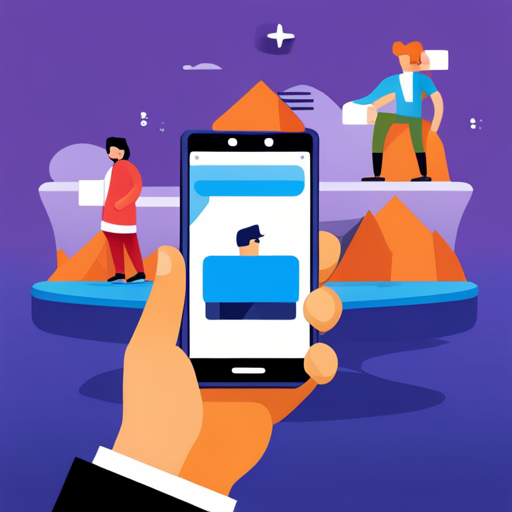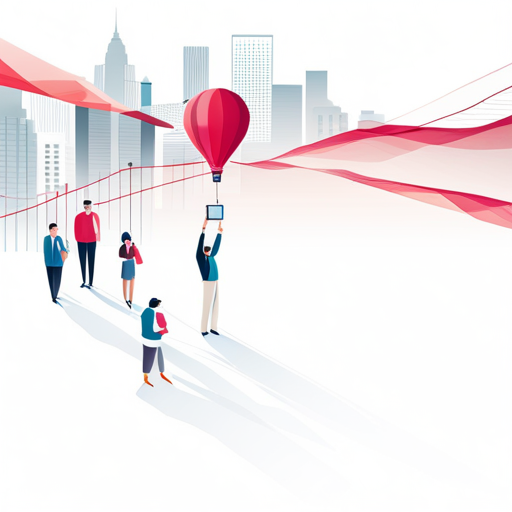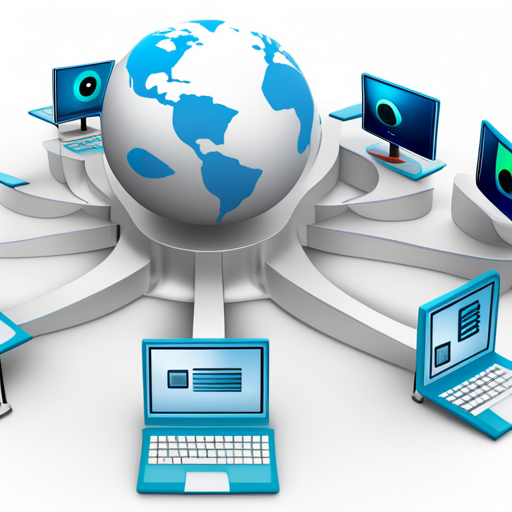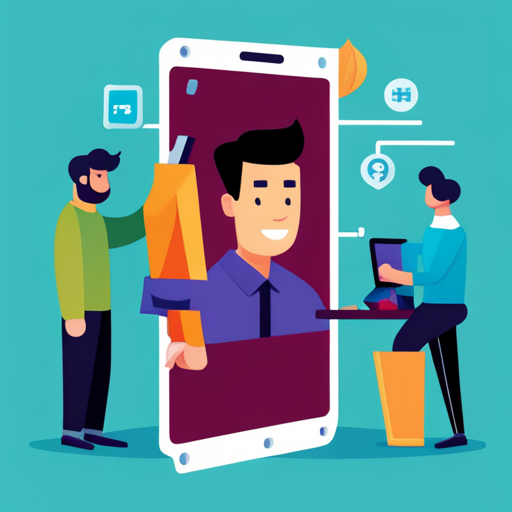The Importance of Personalization in Digital Marketing
In the fast-evolving world of digital marketing, personalization has become a key strategy for brands looking to engage customers, foster loyalty, and drive conversions. With the wealth of data available to marketers today, businesses can now create more targeted, relevant, and personalized experiences for their audience. Personalization goes beyond simply addressing a customer by name—it involves tailoring the content, offers, and interactions to meet individual preferences, behaviors, and needs.
In this article, we’ll explore the importance of personalization in digital marketing, how it can enhance the customer experience, and the strategies brands can implement to achieve effective personalization.
1. Enhances Customer Experience
At the heart of personalization is the ability to create a better, more relevant customer experience. In an age where consumers are bombarded with information, generic messaging and one-size-fits-all marketing approaches often fall flat. Personalization allows brands to cut through the noise and deliver content and offers that speak directly to the needs and interests of individual users.
How Personalization Improves Customer Experience:
- Relevant recommendations: By analyzing user behavior and preferences, brands can recommend products, services, or content that are more likely to resonate with each individual.
- Customized messaging: Tailoring email subject lines, website copy, and ads to the specific interests of the recipient leads to higher engagement and click-through rates.
- Seamless experiences: Personalization can extend across multiple channels, ensuring that customers receive a consistent, cohesive experience whether they’re engaging with your brand via email, social media, or your website.
When customers feel that a brand understands their needs and preferences, they are more likely to engage with the content and develop a positive perception of the brand.
2. Increases Engagement and Conversions
Personalized marketing increases the chances that a customer will engage with your brand’s content, which in turn leads to higher conversion rates. Personalized experiences capture attention by offering users something relevant and tailored to their preferences, making it more likely that they’ll take the next step—whether that’s making a purchase, signing up for a newsletter, or filling out a form.
Key Stats on Personalization and Engagement:
- 80% of consumers are more likely to make a purchase when brands offer personalized experiences.
- 72% of consumers say they only engage with marketing messages that are customized to their interests.
- Personalized emails have a higher open rate (up to 26%) compared to generic emails.
By delivering personalized content, brands can significantly improve engagement and conversions, ultimately driving more revenue.
3. Builds Customer Loyalty and Trust
Personalization helps foster stronger relationships between brands and their customers. When a customer feels that a brand understands and values their preferences, they are more likely to become loyal, repeat buyers. In contrast, impersonal, irrelevant marketing can feel disconnected and result in a negative customer experience.
How Personalization Builds Loyalty:
- Tailored rewards and offers: Personalized discounts, loyalty programs, and rewards that are based on a customer’s purchase history or browsing behavior encourage repeat business.
- Relevant content: When customers receive content that aligns with their interests, they are more likely to return to your brand for information, advice, or products.
- Data-driven trust: When brands use customer data to create personalized experiences, it shows that they’re paying attention to the customer’s preferences, building trust and rapport.
By building personalized relationships, brands can turn one-time buyers into loyal customers who feel a genuine connection to the business.
4. Improves Marketing ROI
Personalization not only improves customer experience and engagement but also boosts the overall return on investment (ROI) of your marketing efforts. By focusing on delivering content and offers to the right audience at the right time, businesses can reduce wasted ad spend, increase efficiency, and improve campaign performance.
How Personalization Drives Higher ROI:
- Targeted advertising: Personalized ads ensure that your marketing budget is being spent on reaching customers who are more likely to convert, rather than casting a wide net.
- Increased relevance: When customers receive personalized content, they are more likely to engage with it, resulting in higher click-through rates, conversions, and customer retention.
- Reduced churn: By delivering personalized experiences, brands can reduce customer churn by ensuring that users are consistently receiving content and offers that meet their needs.
The ability to target the right people with the right message allows businesses to maximize their marketing spend and drive better results.
5. Facilitates Data-Driven Decision Making
Personalization relies heavily on data. By collecting and analyzing customer data, businesses can gain deeper insights into user behavior, preferences, and patterns. This data is invaluable for making informed decisions that lead to more effective marketing strategies.
Types of Data Used for Personalization:
- Demographic data: Information such as age, gender, location, and income level helps segment your audience and tailor your messaging.
- Behavioral data: Analyzing how users interact with your website, products, or emails provides insights into their interests and preferences, enabling personalized content recommendations.
- Transactional data: Purchase history and browsing behavior can be used to offer personalized product recommendations, promotions, and upsells.
By leveraging data for personalization, businesses can continuously refine their strategies, create more targeted campaigns, and improve overall performance.
Strategies for Effective Personalization
1. Personalized Email Marketing
Email remains one of the most effective channels for personalization. By segmenting your email list and tailoring your messages based on user behavior, preferences, and demographics, you can deliver highly relevant content that resonates with your audience.
Personalization Tactics for Email:
- Dynamic content: Use dynamic content blocks in your emails to show personalized offers, product recommendations, or messaging based on user data.
- Behavior-based triggers: Set up automated email campaigns triggered by user behavior, such as abandoned cart reminders, product recommendations, or follow-up emails after a purchase.
- Personalized subject lines: Include the recipient’s name or reference their recent activity to increase open rates.
Personalized email campaigns lead to higher engagement and conversions, making them a crucial part of any personalization strategy.
2. Personalized Website Experiences
Creating personalized experiences on your website can significantly enhance user engagement and increase conversions. This involves showing content, products, and offers tailored to each visitor based on their past interactions, preferences, and behavior.
Website Personalization Techniques:
- Dynamic content recommendations: Use algorithms to display personalized product or content recommendations based on a visitor’s browsing history or preferences.
- Personalized pop-ups: Show personalized pop-ups that offer discounts or relevant products based on a user’s past behavior.
- Geo-targeting: Tailor content and offers based on the visitor’s geographic location to make your site more relevant to their needs.
By personalizing your website, you create a more seamless and engaging experience for visitors, increasing the likelihood of conversion.
3. Use of AI and Machine Learning
AI and machine learning are becoming increasingly important in personalizing digital marketing strategies. These technologies allow businesses to analyze large amounts of data and predict customer behavior, enabling more accurate and real-time personalization.
How AI Enhances Personalization:
- Predictive analytics: AI can analyze past customer behavior to predict what products or content they’re likely to be interested in next, helping you serve personalized recommendations.
- Chatbots: AI-powered chatbots can provide personalized assistance to customers based on their previous interactions with your brand.
- Customer segmentation: Machine learning can identify patterns in customer data, helping you segment your audience into more specific and relevant groups for targeting.
Leveraging AI and machine learning can help businesses deliver personalization at scale, improving efficiency and effectiveness.
FAQs About Personalization in Digital Marketing
1. What is personalization in digital marketing?
Personalization in digital marketing involves tailoring content, messaging, and offers to individual users based on their behavior, preferences, demographics, and interactions with your brand.
2. Why is personalization important in digital marketing?
Personalization enhances the customer experience, increases engagement, drives higher conversions, builds loyalty, and improves marketing ROI by delivering more relevant content and offers to each user.
3. How can I personalize my email marketing?
Personalize your email marketing by segmenting your audience, using dynamic content blocks, sending behavior-based triggered emails, and including personalized subject lines.
4. What role does data play in personalization?
Data is essential for personalization, as it allows businesses to analyze user behavior, preferences, and demographics to create tailored experiences that resonate with individual users.
5. How can AI improve personalization in digital marketing?
AI and machine learning enable businesses to analyze large datasets, predict customer behavior, and deliver real-time personalized recommendations, making it easier to scale personalization efforts.
Conclusion
Personalization is no longer just a “nice-to-have” feature in digital marketing—it’s a critical strategy for building stronger customer relationships, driving engagement, and increasing conversions. By tailoring your messaging and experiences to individual users, you can create a more relevant and memorable brand experience that resonates with your audience. Whether through personalized emails, website experiences, or the use of AI, brands that embrace personalization are more likely to stand out in a crowded marketplace and foster long-term loyalty with their customers.












